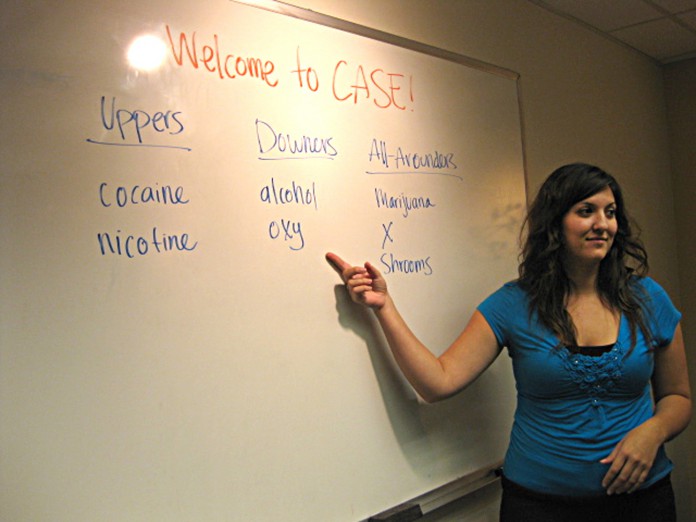Sharon Baek
Writer
Every year, hundreds of student minors who are caught for alcohol and drug violations are required to attend UCSB’s College Alcohol & Substance Education (CASE).
Although anybody is allowed to attend CASE, students who are caught violating the law are obliged to attend.
Beginning its sixth year since its start in 2005, the program consists of hour-long sessions for five weeks. During the course, students track their own alcohol and drug behavior and openly discuss their experiences with alcohol, drugs, and partying.
But how effective is the program?
“There’s a positive response to the program itself,” said Jacqueline Kurta, director of the CASE program. “Initially, students were hesitant because they violated a policy. However the majority of students had a very good experience, appreciated the approach that we took, valued the opportunity for discussion, and became aware of their own abuse of alcohol.”
CASE strives to maintain the safety and well-being of the students. If students still choose to engage in those behaviors, CASE instructors will try to provide information that will at least help students make safer choices.
Compared to other drug and alcohol programs, the CASE program lasts much longer.
“We like the length of the program because when we have the opportunity to see students for 5 weeks, they develop a trust and bond with our counselors,” said Kurta. “We can see students during their life as opposed to one kind of a snapshot.”
CASE provides tips on how to make better choices when drinking. Chasing drinks, reducing the amount of drinks, and eliminating binge drinking and blackouts are all topics students receive advice about. Students engage in discussion with other students to reduce peer pressure, find healthy alternatives, and reduce their stress or anxieties to make the most of the program.
Over time, the students find support and develop a non-judgmental, trusting relationship with their counselors as well.Many students and counselors agree and effectiveness of this program.
A CASE graduate, Sandy Kuo, discussed her past expectations about the program.
“Before [I attended] CASE, I thought it would be an intimidating class where the instructor just grills his or her students on how terrible alcohol is. It was more like a small discussion group rather than a class. It was better than I expected,” said Kuo. “It helps me to think twice before doing anything that I might regret later on in life.”
As CASE continues to educate students, their hope is for every student to think twice before they make any decision.
Although UCSB continues to be infamously labeled as a “party school,” programs such as CASE work to help all students to at least party safer and party right.
Photos by: Sharon Baek












Comments are closed.